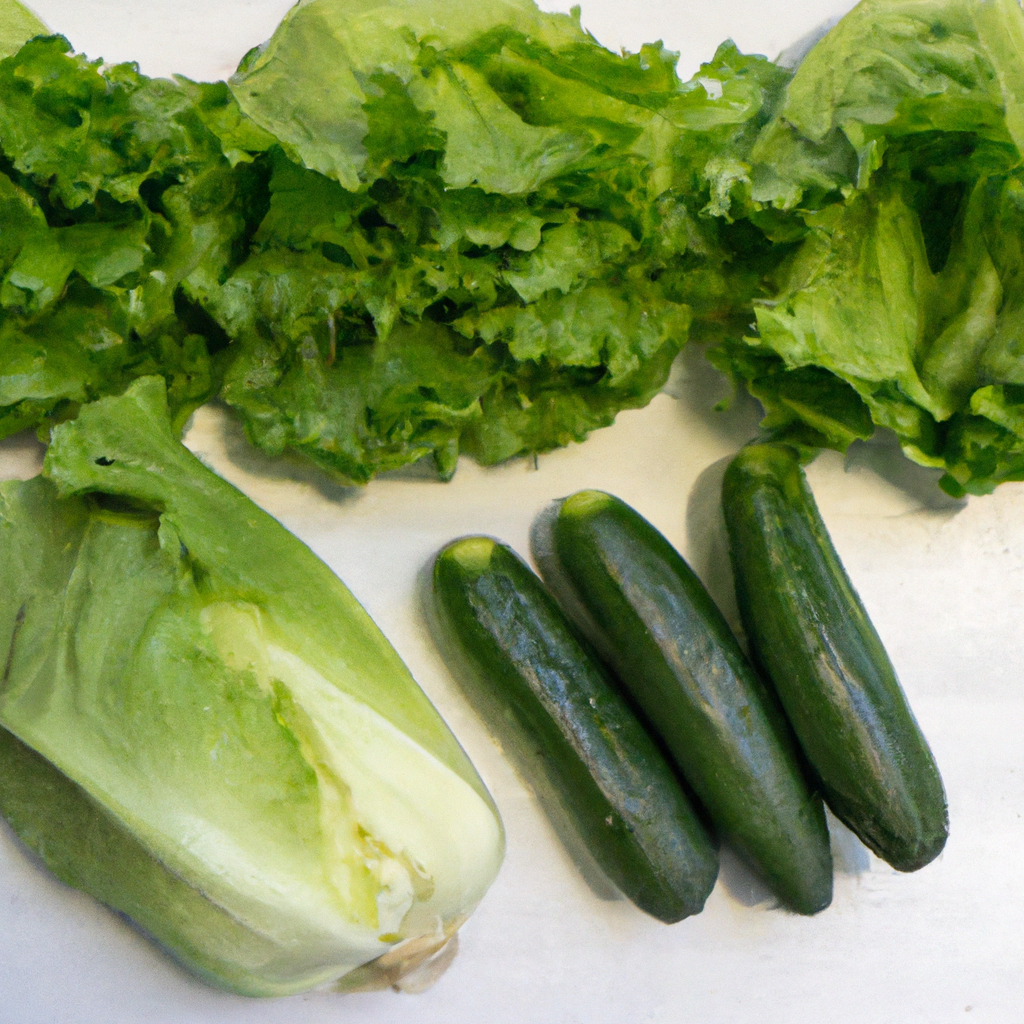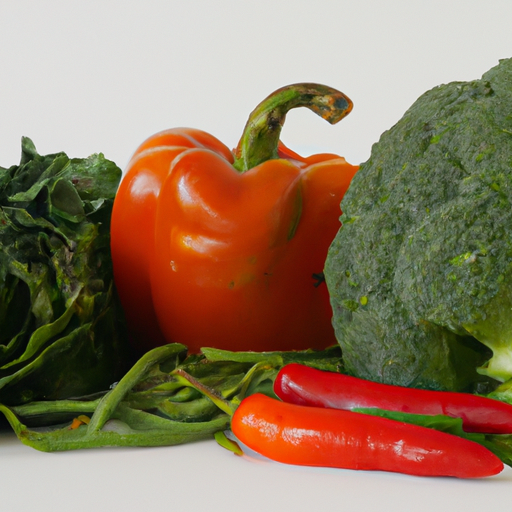As diabetes continues to be a major health problem in our world, it is important to understand the right kinds of foods to eat to ensure good health over time. One of the most important parts of managing diabetes is incorporating the right vegetables into your diet for the best possible diet. In this article, we will look at the vegetables that are recommended for diabetics to incorporate in their meals.
1. Creative Ways to Incorporate Vegetables into a Diabetic Diet
Vegetables are Loaded with Benefits
Vegetables are packed with essential vitamins, minerals, and antioxidants—essential nutrients for people with diabetes. They are low in carbohydrates and calories, making them great options for a diabetic-friendly diet. Fortunately, there are plenty of creative ways to incorporate vegetables into a diabetic’s daily meals.
- Create vegetable breakfast bowls. Start your day with a nutrient-dense breakfast by adding thinly-sliced avocado, roasted bell peppers, or sautéed mushrooms onto your usual breakfast of oatmeal, eggs, or a smoothie.
- Make veggie scrambles. Try swapping out your regular scrambled eggs for a veggie scramble. Add spinach, tomatoes, kale, broccoli and mushrooms for a tasty, nutrient-rich meal.
- Add roasted veggies onto sandwiches and wraps. Swap lettuce for roasted kale, peppers, or squash for your favorite lunch wrap or sandwich.
- Veggie-filled stews and soups. Make your favorite stew recipe healthier by adding in carrots, mushrooms, parsnips, cauliflower, zucchini, or eggplant.
- Fried rice with veggies. Use brown rice to make a hearty and nutritious fried rice. Add broccoli, asparagus, zucchini, bell peppers, and mushrooms for added nutrition.
- Snack on veggie sticks. Slice up your favorite vegetables into sticks and snack on them with hummus for a simple, low-carb snack.
Replace your regular spaghetti with spiralized veggies. Use veggies like zucchini, sweet potatoes, or carrots to make “vegetable noodles”, then add your favorite sauce for a healthy and delicious replacement. For more ideas, take a look at all of the delicious vegetable recipes available online to make your meals more exciting.
2. The Benefits of Eating Vegetables for Diabetics
- Improved Blood Sugar Regulation – One of the main benefits of eating vegetables for diabetics is improved blood sugar regulation. Vegetables are high in fiber, which is important for maintaining steady blood sugar levels. Eating the recommended amount of fiber can help regulate your blood sugar and reduce the risk of nutrient deficiencies that can be harmful for people with diabetes.
- Weight Management – Eating vegetables is beneficial for diabetics who are trying to manage their weight. Vegetables are low in calories and carbohydrates, so they can help you maintain a healthy weight and keep blood sugar levels under control. Eating a balanced diet that includes vegetables can also help reduce your risk of obesity and other weight-related illnesses.
In addition to helping regulate blood sugar and aiding with weight management, eating vegetables has other health benefits for people with diabetes. Eating vegetables is also a great way to increase your intake of vitamin and minerals, which is essential for people with diabetes since they may be at risk of developing vitamin deficiencies. Eating vegetables can also help reduce your risk of heart disease, which is a major concern for people with diabetes. Furthermore, a diet rich in vegetables can help reduce inflammation in the body, which can help reduce fatigue, joint pain, and other diabetes-related symptoms.
3. The Low-Glycemic Index Vegetables for Diabetics
For people living with diabetes, it is important to pay attention to dietary choices to maintain healthy blood sugar levels. But, balancing food choices to manage glucose levels can seem daunting. Fortunately, there are vegetables that can help with this, as they possess low-glycemic index (GI) scores. These ultra-healthy vegetables provide essential nutrients for diabetics and are low in sugar, aiding in healthy blood sugar levels.
Here is our list of top low-GI vegetables for diabetes:
- Broccoli
- Spinach
- Mushrooms
- Cabbage
- Cauliflower
- Asparagus
- Green beans
- Brussels sprouts
These vegetables are an excellent source of dietary fiber, vitamins, nutrients, and minerals which – when combined in a sensible diet – are paramount to good health for diabetics. In addition, regular intake of these low-GI vegetables can help to reduce your risk of developing type-2 diabetes in the first place.
4. How to Add More Vegetables to Your Diabetes Meal Plan
Making vegetables a bigger part of your diabetes meal plan doesn’t have to be a chore! Here are some easy and delicious ideas to help you add more veggies to your meals:
- Swap out part of your normal portion size of grains for vegetables. For example, if you typically have a cup of rice, reduce it to ½ a cup and make up for the lost volume with steamed broccoli.
- Experiment with different combinations of raw and cooked vegetables. Assemble a crunchy vegetable wrap with lettuce, bell peppers and cucumber slices. Or add crunch to a soup by stirring in chopped bell pepper after the soup is cooked.
- When grilling meats, entice your taste buds with smoky flavor by adding a grilled vegetable side dish. Grilled asparagus, zucchini or eggplant make delicious sides.
- For a quick and tasty veggie-packed snack, toss a few handfuls of baby spinach with olive oil and salt. Roast in a preheated 224°F (110°C) for 4–5 minutes, until the leaves are crispy.
When planning out your meals, give consideration to which veggies may provide the most nutritional benefits. Intensify the flavor of healthy ingredients like carrots, Brussels sprouts, kale and other leafy green vegetables by roasting them in the oven with your favorite herbs and spices. Adding a moderate amount of cheese or nuts can give you a low-carb and diabetes-friendly dish. With a little effort and experimentation, you can make each meal a nutritional powerhouse.
Eating well is an integral part of a healthy lifestyle for all persons, and especially for those with diabetes. Remember to incorporate plenty of leafy greens, legumes, cruciferous vegetables, and non-starchy vegetables as a regular part of your diabetes meal plan. Together these mouth-watering picks can fill up both your plate and your belly with tasty healthful satisfaction.
When it comes to managing diabetes, diet is one of the most important factors to consider. Diabetics need to watch their carbohydrate and sugar intake, and a healthy diet that focuses on nutrient-dense foods is essential for keeping their blood glucose levels under control. Vegetables are a great addition to a diabetic meal plan, as they are low in carbohydrates and contain essential vitamins, minerals, and fiber.
Some of the best vegetables for individuals with diabetes to incorporate into their diet are leafy greens, like spinach, kale, and collard greens. All of these have low-glycemic index, and they are also packed with essential vitamins and minerals like vitamin A, iron, and calcium. Individuals with diabetes should also try to include cruciferous vegetables such as broccoli, cabbage, Brussels sprouts, and cauliflower into their diet. All of these vegetables contain compounds that can help reduce inflammation and regulate blood glucose levels.
In addition, most root vegetables can easily fit into a diabetic meal plan. Root vegetables like turnips, sweet potatoes, beets, and carrots are rich in fiber, vitamins, and minerals, and they have a low glycemic index. For individuals with diabetes, these vegetables can help slow down the rate by which glucose is released into the bloodstream.
Other vegetables that are beneficial for diabetics include artichokes, string beans, asparagus, squash, and peppers. All of these contain essential vitamins and minerals that can help keep blood sugar levels stable. In addition, they are low-calorie, low-carbohydrate, and low-fat which makes them great choices for people with diabetes who are looking to shed some weight.
In conclusion, incorporating nutrient-dense vegetables into the diet is an excellent way for individuals with diabetes to manage their condition. Leafy greens, cruciferous vegetables, root vegetables, and other vegetables can all help keep blood sugar levels in check while providing essential vitamins, minerals, and fiber.
